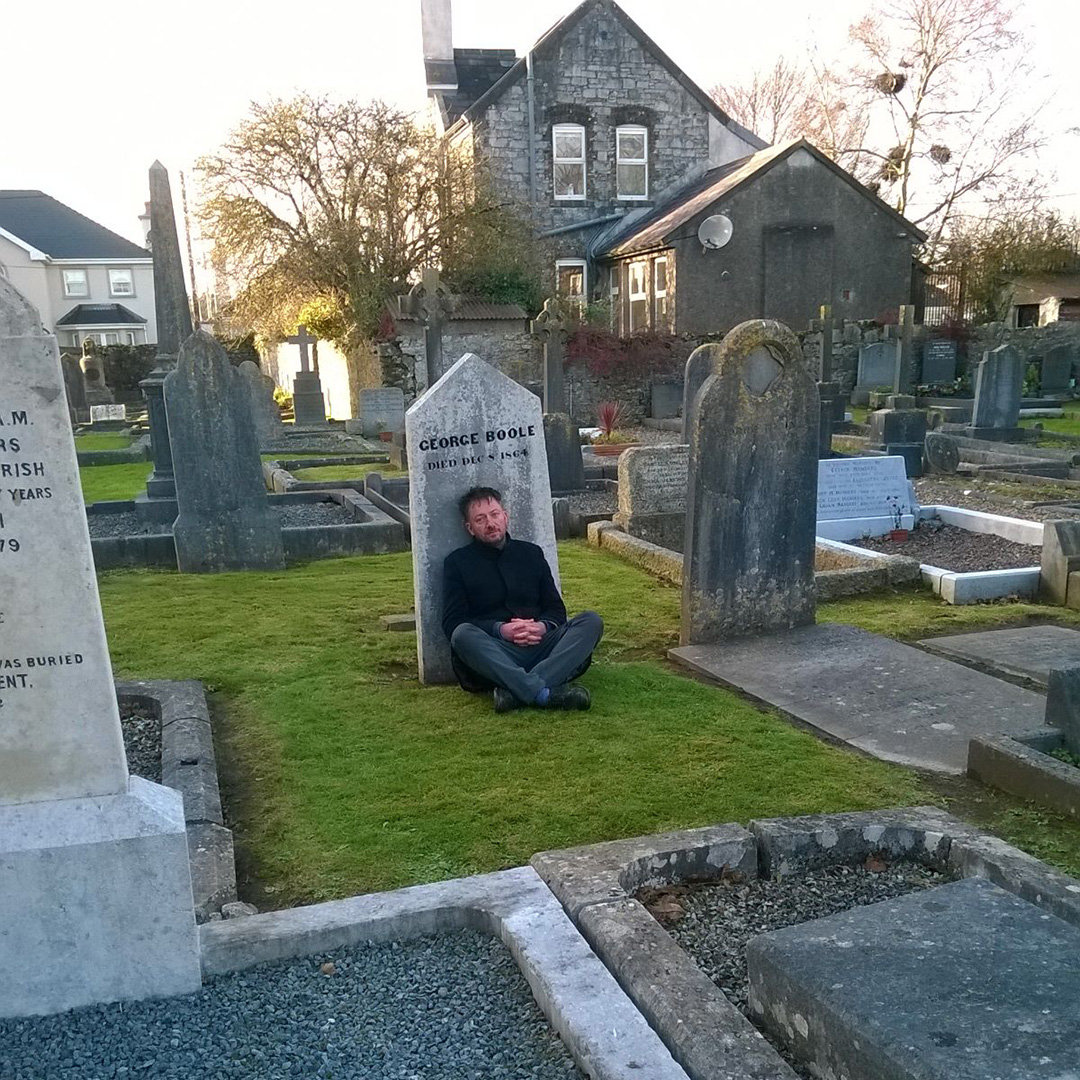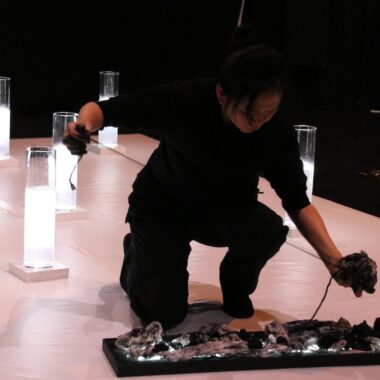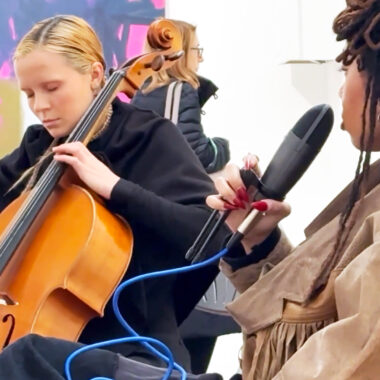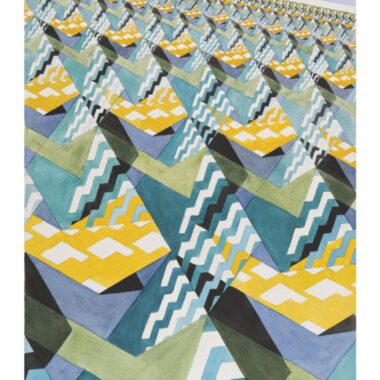Micheál O’Connell / MOCKSIM LG presenting at University College Cork this week
I and many I know and/or respect are presenting at University College Cork (the birthplace of Boolean Logic no less) on Thursday and Friday (13th-14th June): 2nd Symposium on Digital Art in Ireland: Programme & book of abstracts. If you are within range, and wanting to exercise your brain, then come along.
Here’s the abstract and a biog:
What is Artificial Stupidity?
Micheál O’Connell (University of Sussex)
Following an event in 2015 at which celebrated professor of Cognitive Science, Margaret Boden, spoke about the would-be dangers of AI as it was emerging then, I had the luck to be sitting across from her at a meal organised afterwards. Asked what my, at the time ongoing, practice-led doctoral project was about, I answered: ‘artificial stupidity’. Boden laughed out loud (clearly with, and not at the idea). The practice-led PhD was completed a year later but the subject remains relevant and of interest, and so I am in the process of consolidating aspects of the thesis into a short book. The exact expression, ‘artificial stupidity’ (AS?), or close variations on it, have since been used by others in very different contexts, James Bridle, Meredith Broussard, Stephen Pinker and Hito Steyerl to name a few, and with reference to seemingly dissimilar phenomena. The book will re-present findings, bring arguments up to date, as well as showing how these disparate applications of what was initially a joke phrase can, in fact, be related to each other.
A theme in my earlier research was that artificial stupidity had application not only to what machines do but to human activity too, specifically to creative processes, to artists’ approaches and also to art as a (social) system. The new writing will attend more to other usages of the term.
For good reason, ‘stupidity’ is controversial, but interrogation of its generally derogative employments is revealing about the problematics of the apparent opposite, that as-it-happens mysterious quality, intelligence. Intelligence can refer to the usual human variety, to animals, and now we accept it can apply beyond the biological, in particular in recent years to technologies. For most, artificial intelligence, AI, denotes the idea of computers thinking, or appearing to think, like human beings do, but broader definitions, can be put forward. Conceptions of intelligence have also long been supposed within networked – or cybernetic – systems. The, arguably more esoteric, understandings of both intelligence and artificial intelligence will be defended in the writing. If it is considered important to engage thoughtfully with the numerous emerging forms of AI and to be wary of the power of the algorithm – as many AI insiders warn we should – then a critical attitude ought to be adopted too with respect to expanded formulations of what constitutes an algorithmic system.
With the help of an overview diagram, this presentation paper provides a status-report of sorts on progress with the book, highlighting the arguments outlined above and others.

MICHEÁL O’CONNELL’s artistic practice employs strategies—often carried out under the moniker Mocksim—of ‘interference’ with everyday functional processes, including misuse, misunderstanding, lampooning and tinkering with technological systems. The systems of interest include the computational, those connected with the digital realm, but also analogous heavier infrastructures, for transportation including the road networks, say, and overarching bureaucratic, legalistic or political frameworks. An Arts Council/An Chomhairle Ealaíon Commissions Award facilitated the production of new work for a solo exhibition, System Interference, in West Cork in 2022, which then travelled to Wexford Arts Centre, and Highlanes Gallery, Drogheda, completing in February 2024. To coincide with the tour, philosopher of aesthetics John Roberts wrote a book which riffs off the work: Art, Misuse and Technology: Micheál O’Connell’s ‘System Interference’. O’Connell’s own writing and meaning-making draws upon bodies of knowledge, firstly arising from this two decades of post-conceptual art activity, but before that in arenas of mathematical modelling and computer simulation in engineering contexts, thirdly, via deep engagement with political economy and activism, and lastly, dramaturgy, and specifically comedic performance. With respect to the latter Mikhail Bakhtin’s interpretations of medieval carnival and focus on the significance of laughter and ‘the fool’ were given attention during his PhD. Main theoretical influences include technology, new media and critical aesthetics thinkers such as Caroline Bassett, Claire Bishop, Sianne Ngai, John Roberts, Hito Steyerl, Bernard Stiegler, Peter-Paul Verbeek and Joanna Zylinska, systems and cybernetics writers such as Niklas Luhmann and Andrew Pickering and more recent writing relevant to AI from authors like Joy Buolamwini, Meredith Broussard, Caroline Criado Perez, Beatrice Fazi, Justin Joque, Melanie Mitchell, Stuart Russell, and Mustafa Suleyman. Micheál O’Connell is a Senior Lecturer and course leader at University of Sussex.






